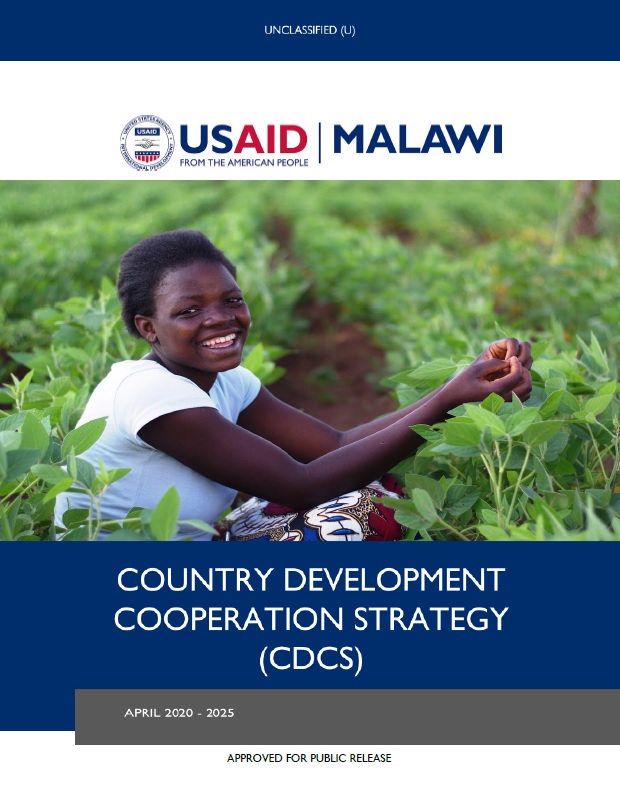Speeches Shim
Malawi is at a turning point in its young democratic history, with a chance to make major development progress.
Malawi’s trajectory towards self-reliance is at a critical juncture. The
confluence of weak government and economic capacity is coming to a head at
a time when Malawi’s population, with one of the lowest UNDP Human
Development scores globally, is set to double in less than 20 years.
Malawi’s young and growing population, therefore, presents either a risk
for instability or potential for a demographic dividend. If Malawi does
not adequately address the needs of its youth - further compounding the
proportion of undereducated, unskilled, unemployed, and disillusioned young
men and women - then Malawi will miss its opportunity to harness the
demographic dividend critical for increasing self-reliance. If, however,
Malawi can provide opportunities for youth to develop their skills, voice,
and agency, while contributing civically and engaging economically, then
the trajectory of the country appears positive. This latter hypothesis can
only come to fruition if the Government of Malawi: 1) builds its capacity
to finance and deliver social services; 2) demonstrates its commitment to
accountable governance; and 3) creates an enabling environment that can
partner with the private sector to drive inclusive economic growth.
The complex, overlapping, and intertwined nature of Malawi’s development
challenges requires an integrated approach. The 2020 - 2025 CDCS will move
away from identifying sector-specific challenges and take a more holistic
approach to development that focuses on building long-term capacity and
commitment for self-reliance. For example, Malawi’s critical issues around
youth, gender, governance, and resource mobilization impact all sectors and
activities. Like many development problems in Malawi, there is no single
place to "hang" these on a results framework. Each of these themes can
negatively or positively affect all other sectors and must, therefore, be
addressed by all. In order to work, this integrated approach requires
joint program development, shared metrics, and cross-sectoral funding.
Given this context, USAID/Malawi has made strategic choices to implement an
integrated, gender sensitive, five-year CDCS. The overarching goal is: "A
More Self-Reliant Malawi that is Gender-Equitable and Democratically
Accountable." To help move Malawi towards greater ownership of its
development challenges, USAID/Malawi has prioritized three Development
Objectives: 1) Public sector is more accountable and effective at national
and decentralized levels; 2) Youth lead healthy, informed, and productive
lives; and 3) Private sector increases inclusive and sustainable wealth
generation.
To implement the new CDCS in Malawi, USAID will partner with the
interagency to leverage the full range of U.S. government development,
diplomatic, and defense resources available to achieve outcomes. There are
no illusions among those working in Malawi that this five-year strategy
will resolve the country’s long-standing development challenges. It is
expected, however, that this five-year vision can improve service delivery
for all citizens, reduce some of the governance obstacles impeding
development, and increase positive contributions towards sustainable
economic growth. Collectively, these outcomes can put Malawi on a more
positive trajectory for the future.
As the largest bi-lateral donor, the United States works in partnership
with the people and government of Malawi to advance common development
priorities. The 2020 - 2025 CDCS will build on successful partnerships and
programs, while also making significant adjustments in its development
approach. Ten strategic principles - grouped into three broad themes -
will underpin the new strategy. These themes are: 1) broader partnerships
- to diversify the partner base and ways in which awards are made and
managed, 2) bolder selectivity - to prioritize investments where there is
greater commitment and ownership, and 3) better approaches - to bring
innovative interventions to complex development problems. Through this
approach, USAID/Malawi will focus energies on aligning itself with new
local partners (including the private sector), invest where there is
demonstrated commitment and political will for change, and use an
integrated approach across sectors to untangle some of Malawi’s most
intractable development challenges.
Read the full report [pdf]



Comment
Make a general inquiry or suggest an improvement.